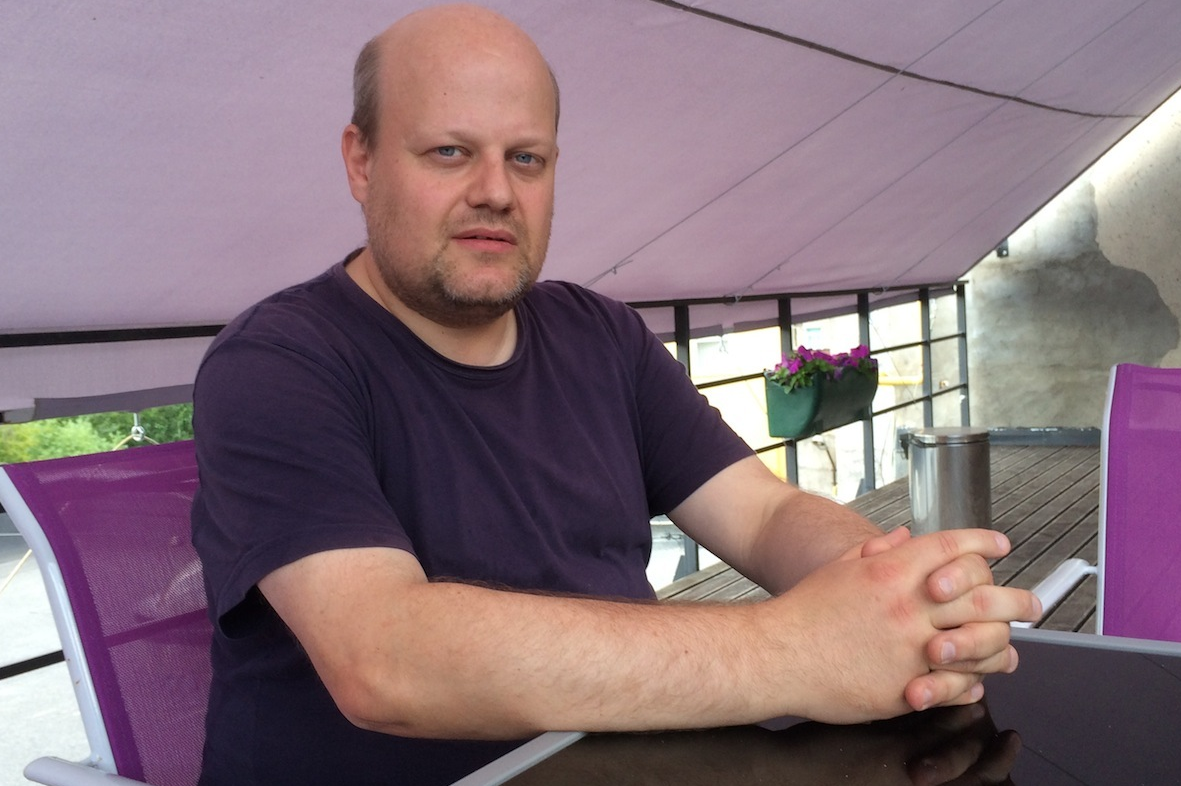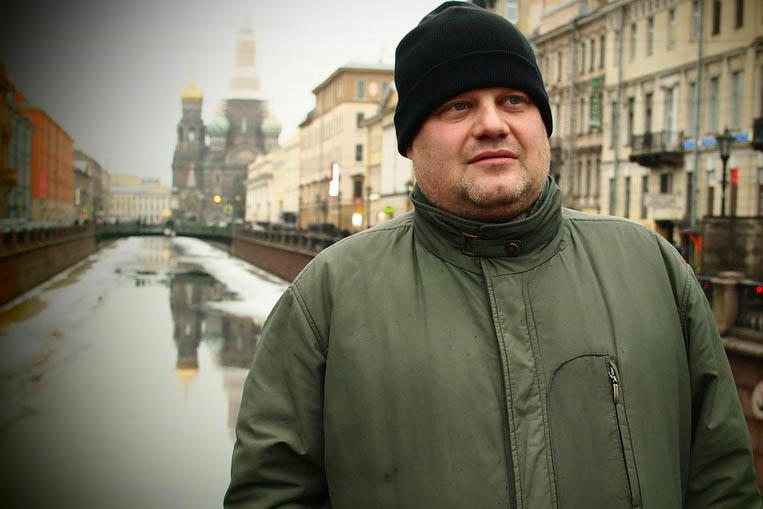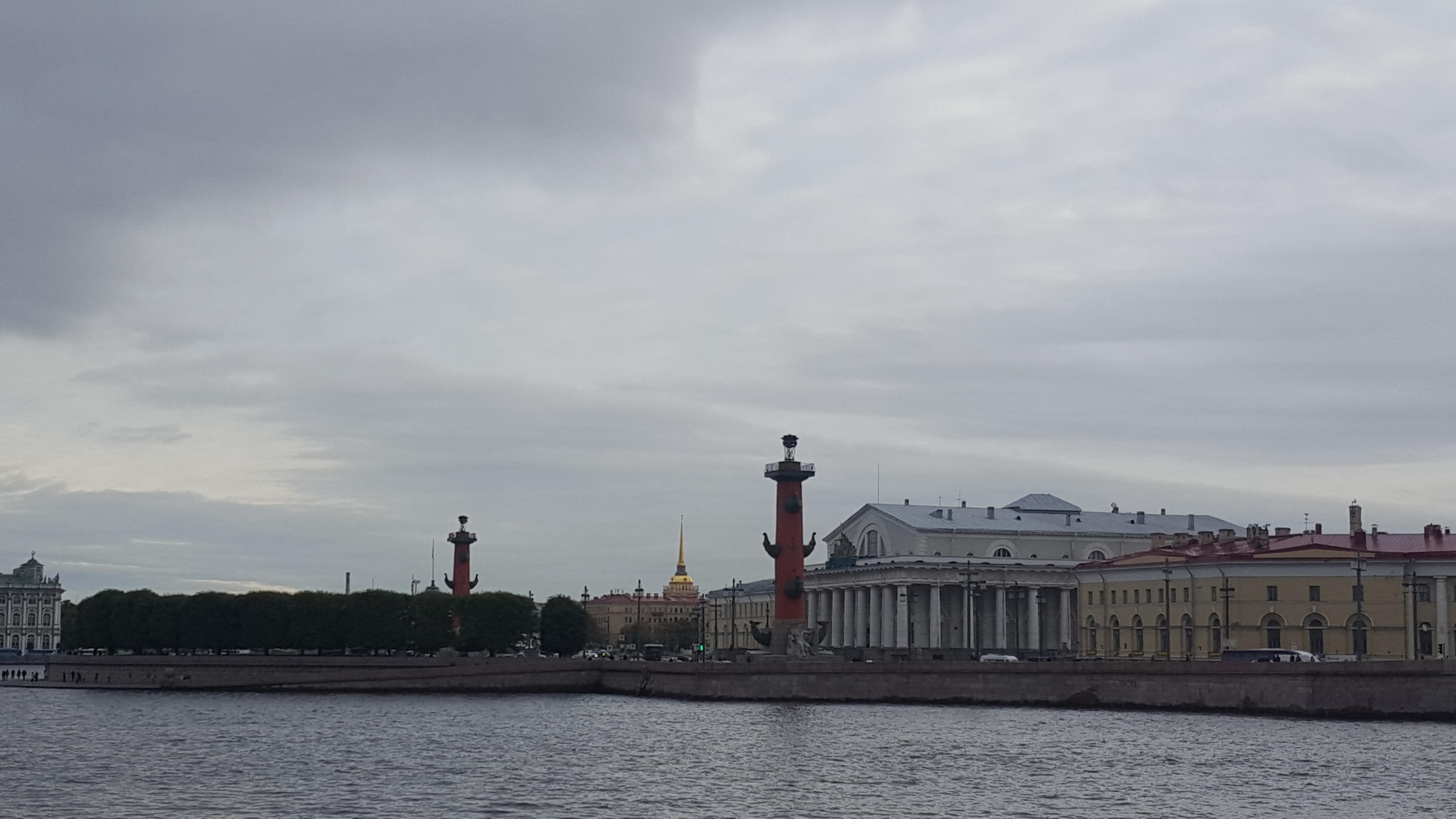
‘Big differences between the law and reality’

How does a Swiss person integrate in Russia? Having Russian friends and an interest in local history, culture and sport can help, says 45-year-old Daniel Rehmann, a businessman representing Swiss expatriates living in Russia.
swissinfo.ch: Why did you choose to live in Russia? Was it by chance, or planned?
Daniel Rehmann: It was a result of how business was building up here and my academic further education at the University of St PetersburgExternal link. It wasn’t planned. I met some people on a trip to St Petersburg who proposed cooperating with me in building up a tourism business. That’s how I got started here. It was also during the economic boom in Russia and there were plenty of business opportunities. So I stayed and built up my own small business while furthering my education at local Russian universities.
swissinfo.ch: How did you imagine Russia before you arrived – what were your expectations?
D.R.: I had visited Russia a few times previously and made some contacts here, so I was a little bit prepared. I obviously did have expectations but I was realistic enough to see the opportunities and the risks. The economic boom in the years 2002 to 2008 was very impressive, and Moscow and St Petersburg changed and modernised very fast.
It was, however, always clear to me that for foreigners, there are political risks to living in Russia. These became apparent after 2014 [start of the conflict in Ukraine].
swissinfo.ch: How did you feel in these metropolises?
D.R.: I felt very safe. There was a lot to discover. In 1998 and 1999, without the internet, you had to look for the right information or ask people. The most important thing was to understand the metro system in Moscow and St Petersburg.

swissinfo.ch: When did you realise that you would stay in Russia for a long time and that this would be more than a business trip?
D.R.: When I got the first contracts and completed some successful projects, passed the admissions examinations at the universities, and was out and about a lot in St Petersburg with local friends and getting to know Russia through longer trips to the different regions.
swissinfo.ch: Do you understand the Russians? Are the “special character” and the “big Russian soul” just clichés?
D.R.: Yes and no. You adapt, you learn the language, and you fit into Russian life. But I grew up in Switzerland. So I will never really be able to understand “the Russians”, although I can understand a lot. Yes, many Russians express their emotions, and for the Swiss, these emotions are sometimes hard to understand. It is important for a foreigner to have Russian friends, knowledge of Russian literature, history and culture, and to take an interest in sport. Then it’s possible to integrate.
swissinfo.ch: What difficulties have you faced, both professionally and privately?
D.R.: On the professional side, doing business in Russia is different from in Switzerland. You have to learn it by practice. There are big differences between what the law says and what actually happens in reality. Politics plays a much bigger role in influencing and defining the business environment. On the private side, learning the Russian language and finding the right way to integrate into Russian society while maintaining my identity have proven challenging.
swissinfo.ch: How do you rate relations between Russia and Switzerland? Do these have any influence on the Russian political system?
D.R.: I would describe official relations between Switzerland and Russia as relatively good, given the political situation. As far as politics go, there have been reciprocal visits by parliamentary delegations and Swiss Economics Minister Johann Schneider-Ammann visited Moscow last summer.
From an economic perspective, trade between Switzerland and Russia will increase in 2017 for the first time since 2014. The Russian economic crisis seems to be over. There is potential for improvements in bilateral trade; for example, a free trade agreement between Switzerland and the Eurasian Economic Union would be a great boon for Swiss small and medium-sized companies setting up in Russia. It could also help to ease political tensions between east and west. There is still a lively cultural exchange between Russia and Switzerland.
swissinfo.ch: Do you miss anything Swiss when you are in Russia, or anything Russian when you are in Switzerland?
D.R.: In Russia I miss punctuality, on occasion reliability, good cheese, the natural environment, FC Basel and in St Petersburg, I miss the mountains. In Switzerland I miss spontaneity and emotionality; many things that seem impossible can be made possible in Russia with improvisation and flexibility – the “last minute” mentality.
swissinfo.ch: Do you follow public debates in Switzerland? Do you vote? In Russia, e-voting doesn’t always work…
D.R.: Yes I do, and I can vote electronically. At the moment, e-voting works for some Swiss expatriates in Russia.
swissinfo.ch: One frequently expressed opinion is that expatriate Swiss who haven’t lived in Switzerland for a long time should lose the right to vote. What is your position on this?
D.R.: I am clearly against it. Most Swiss expatriates who have lived abroad for a long time still have a connection to Switzerland. There are also many Swiss today who live abroad for professional reasons just for a few years – they shouldn’t lose contact with political affairs in Switzerland. If you vote by post, the documents often come too late and in practical terms you can’t participate in a vote.
swissinfo.ch: What are your tasks as the representative of Swiss people living in Russia?
D.R.: Since 2017, I have served as an elected representative in the Council of the Swiss AbroadExternal link. My role is to serve as a contact person and discuss the concerns and problems faced by the Swiss in Russia with the Organisation of the Swiss Abroad and Swiss politicians, as well as informing the Swiss in Russia about important changes in Swiss policy.

Are you a Swiss citizen living abroad? If so, add the hashtag #WeAreSwissAbroadExternal link to your photos on Instagram.

In compliance with the JTI standards
More: SWI swissinfo.ch certified by the Journalism Trust Initiative





























You can find an overview of ongoing debates with our journalists here . Please join us!
If you want to start a conversation about a topic raised in this article or want to report factual errors, email us at english@swissinfo.ch.